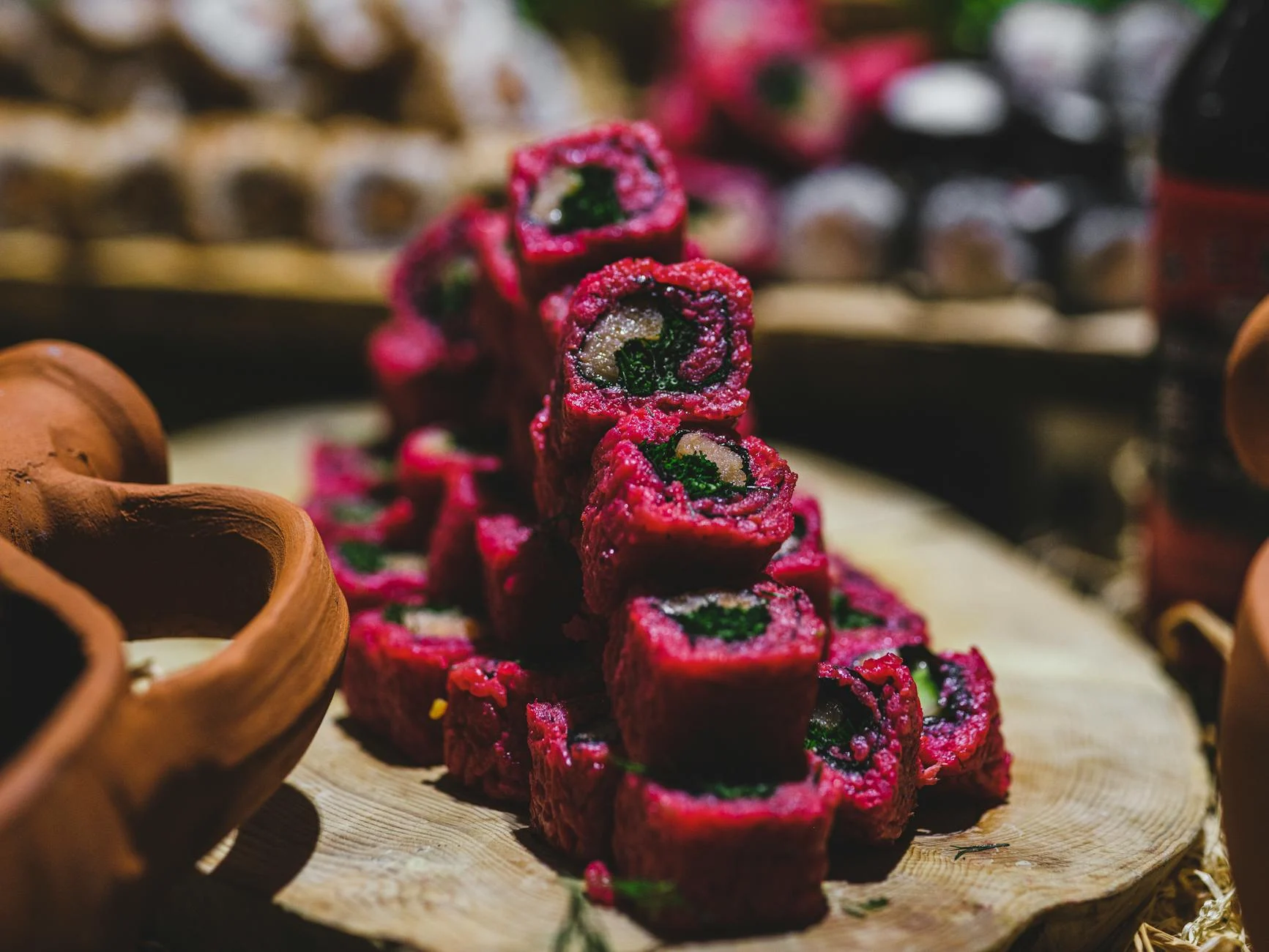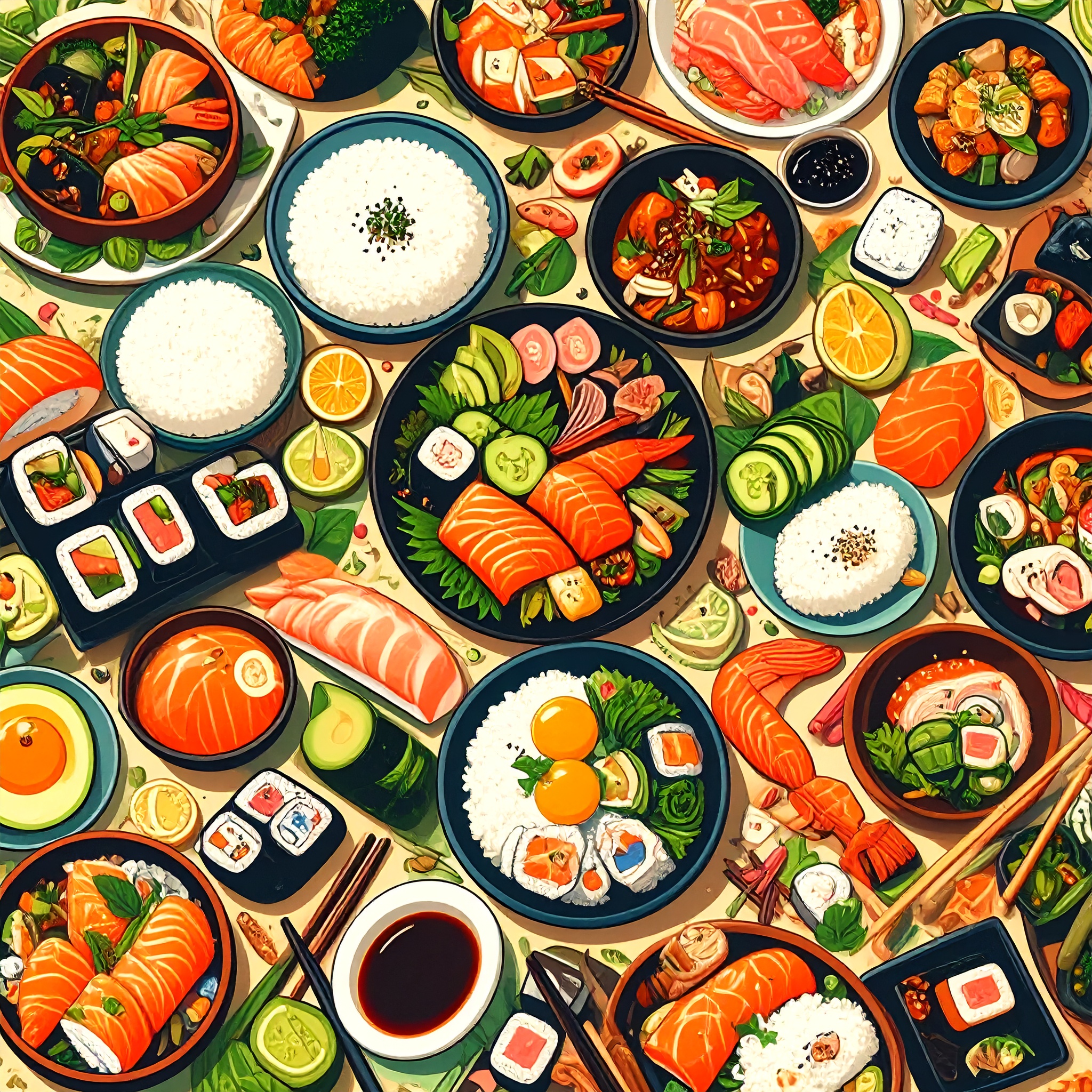Once perceived as a niche lifestyle choice, vegan cuisine has now emerged as a mainstream culinary movement worldwide. From Los Angeles to New York to London, refined vegan restaurants are drawing in health-conscious and sustainability-minded diners with increasingly sophisticated interpretations of plant-based dining.
Yet amid this global trend, Tokyo has quietly established itself as a new epicenter—particularly in the realm of vegan washoku, or traditional Japanese cuisine. In this field, Tokyo’s approach is now being recognized as surpassing even that of other world capitals. But what makes it so uniquely compelling?
One reason lies in the very DNA of Japanese food culture, which has long been built on a foundation that does not depend heavily on animal products. Umami-rich broths are crafted from kombu (kelp) and shiitake mushrooms, and centuries-old techniques exist to highlight the natural sweetness and complexity of vegetables. The philosophy of shojin ryori—a plant-based culinary tradition rooted in Buddhist principles—is arguably one of the original forms of vegan dining. It reflects a profound understanding of how to create a deeply satisfying and elegant meal without the use of meat or fish.

The evolution of vegan Japanese cuisine in Tokyo reflects a refined integration of traditional culinary heritage with modern sensibilities and techniques. Take, for instance, the humble agedashi tofu: its deep umami is extracted exclusively from plant-based ingredients, and it is presented with meticulous attention to plating and tableware aesthetics. Increasingly, establishments are choosing organic, additive-free seasonings—such as miso, soy sauce, rice vinegar, and mirin—crafted entirely without animal-derived ingredients.
What is particularly noteworthy is the reimagining of vegan dining not as a form of dietary restriction, but as an elevated expression of Japanese haute cuisine. Vibrant seasonal vegetable appetizers, simmered dishes featuring wild herbs and mountain vegetables, and mains composed of tofu or yuba are all designed with artistry. From the precision in knife work to the elegance of plating and the selection of vessels, Japan’s distinct aesthetic sensibility is palpable.
In Tokyo, such establishments have even garnered Michelin stars, a testament to the growing recognition of vegan cuisine as a form of high-end dining rather than a niche option. Moreover, to cater to the expectations of international visitors, these restaurants maintain exceptional standards of hospitality—offering English menus, allergen information, and multilingual staff.
While ingredient pairings and plant-based meat substitutes dominate vegan cuisine in New York and Europe, Tokyo’s vegan washoku takes a fundamentally different approach. Rather than seeking replacements, it draws out the inherent qualities of the original ingredients. Tofu, for instance, is not treated as a stand-in for meat, but is celebrated in its own right as the centerpiece of the dish. This reflects the very essence of Japanese culinary philosophy: to honor and elevate the natural character of each ingredient.
Moreover, Japan’s distinctive fermentation culture plays a pivotal role in shaping the depth and complexity of vegan washoku. Beyond the familiar miso and soy sauce, elements such as koji, amazake, and traditional pickles enrich the cuisine with nuanced umami and layered flavors. These fermented components enable chefs to craft deeply satisfying dishes without relying on animal-based flavor enhancers—showcasing a natural sophistication that aligns with the values of refined dining.

Across Tokyo, a new wave of creative vegan washoku is redefining what plant-based fine dining can be. At one restaurant, delicate sesame tofu is crowned with wasabi and kinome leaf, then gently finished with a fragrant yuzu-infused sauce. At another, a risotto-style dish is made with mixed grains and grilled seasonal vegetables, simmered in a traditional Japanese dashi—entirely plant-based yet complete in flavor, texture, and visual presentation.
What drives this innovation is a generation of chefs who see dietary restriction not as limitation, but as opportunity. Their creations reflect the philosophy that it is not what is absent, but what emerges in its place, that defines culinary depth. Underpinning this is Japan’s long-standing ethos of mottainai—a respect for minimizing waste—and an aesthetic that prizes subtraction over addition to reach perfection.
Today, Tokyo’s vegan washoku is becoming a powerful draw for international travelers. More than just accommodating vegetarians or vegans, Tokyo’s culinary culture offers inclusivity for guests with religious, ethical, or health-based dietary needs. This thoughtful flexibility enhances the city’s value as a trusted and enriching destination.
If New York represents a stage for culinary experimentation, Tokyo is the atelier of quiet precision. Through cuisine, it communicates not only sustainability and wellness, but also the refined sensibility and understated elegance of Japanese artistry. The rise of vegan washoku is not merely a trend—it is a quiet revolution unfolding gracefully in the heart of Tokyo.




